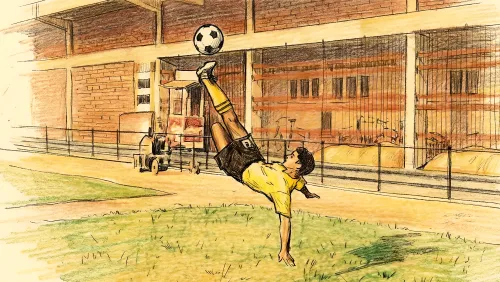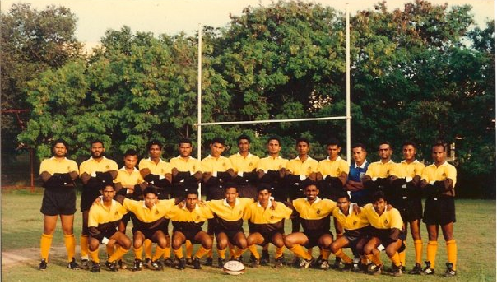 Neville D. Abeygunawardene
Neville D. AbeygunawardeneA revered figure in Sri Lankan football, especially noted for his integrity, discipline, and tactical acumen:
Player & Club Coach
He began his career as an inside-forward with Young Stars FC (Kandy) and later the Nugegoda District team. He went on to coach elite departmental teams—Army, Navy, Police, and Air Force—instilling strict discipline both on and off the field.
National Team Head Coach
As head coach of Sri Lanka’s national team in the late 1950s and 1960s, he led them to the finals of the prestigious Agha Khan Gold Cup in Dhaka, finishing runners-up—a historic achievement.
Unyielding Integrity
Neville famously resigned multiple times in protest against interference from FA officials. In one case, he resigned because the team was asked to play without proper training; in another, he walked away when selectors pressured him over team selection. Each time, he was reinstated, and the FA agreed he would have final say over the team .
Discipline & Behavior Standards
He was known for enforcing high standards of conduct. A squad member was removed for using colloquial language after Neville reminded players they were representing their country, not a “common fish-mongers club”.
Later Life & Legacy
In later years, Neville battled cancer. A feature titled “To Sir, With Love” by Nizam Hajireen recounts his life and impact, describing him as a mentor whose trainees “stand so proudly behind him”—a testament to his lasting influence.
(Pathiniya Durage Sirisena — 1940–2017)
After Neville D. Abeygunawardene, the next towering figure who shaped my footballing journey was P.D. Sirisena—a true icon of Sri Lankan football.
Born in Colombo, Sirisena began his career at Saunders SC and became a national sensation at just 16. He rose to fame after scoring six goals in a single FA Cup final in 1960—a record that remains unbroken. He represented foreign clubs like Dhaka Wanderers, AVC Heracles (Netherlands), and even Swansea United (Wales), making him one of the rare Sri Lankans to play in international leagues.
Sirisena earned 35 national caps and captained Sri Lanka on seven occasions from 1962 to 1969. He participated in historic tournaments such as the 1959 AFC Youth Championship and the Sheikh Ismail Gold Shield in Lahore.
After his playing days, he transitioned to coaching—leading the Sri Lanka National Team from 1976 to 1998. He also coached abroad, taking charge of New Radiant SC and the Maldives National Team in 1988. He was known for his passion and bold predictions—even declaring victory before facing North Korea in the 1980 Olympic Qualifiers, a match that ended in defeat but showcased his fearless spirit.
In recognition of his contributions, Sirisena received a FIFA Lifetime Achievement Award in 2014 from then-president Sepp Blatter, and a ground was named in his honor while he was still alive—the P.D. Sirisena Ground in Maligawatta, Colombo.
More than a coach, he was an inspiration to a generation of footballers—including me. His belief in my potential during my teenage years still echoes in my memory. His voice, his passion, and his vision made him not just a coach, but a legend.
Wikipedia : https://en.wikipedia.org/wiki/P._D._Sirisena



